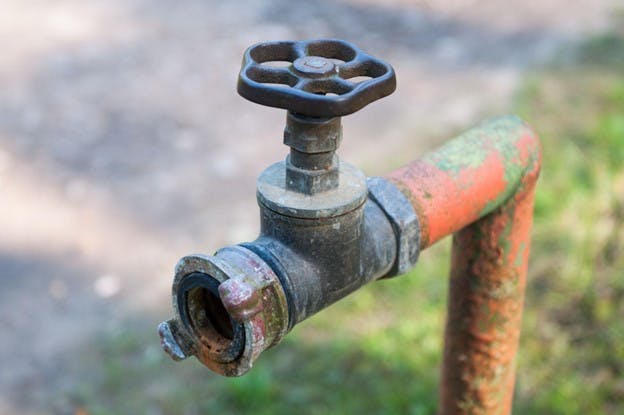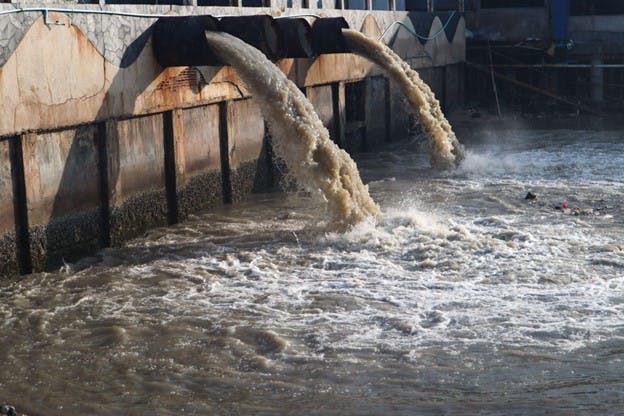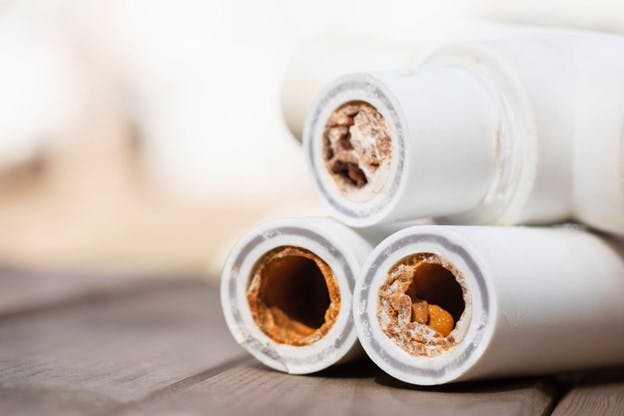February 2024
Checking Under the Hood of Detroit Water Quality
Detroit, Michigan is a city with many identities — from Motown to the birthplace of the American automotive industry. The innovations to come out of Detroit have had an impact around the globe. It’s been a powerhouse of industry, it’s been pivotal in the labor and civil rights movements, and its many sports teams are all iconic. Detroit has come a long way from its origins as a fur trading post. Today, it's a city in transition and the face of renewal in the United States. But all this change comes at a cost.
The infrastructure in Detroit has experienced periods of neglect, and the revitalization efforts are exerting pressure on the Motor City’s aging systems. The delivery of safe drinking water to Detroit's 630,000 residents is increasingly challenging with old pipes and outdated water treatment facilities. These challenges are compounded by the economic constraints faced by the city.
In this article we’re going to dive deep into Detroit water quality. We'll look at where your water comes from, what contaminants are in it, and discuss what, if anything, you might want to consider doing to protect your home.
Where Does Detroit Water Come From?
According to the 2022 Detroit Water Quality Report, the city sources its drinking water mainly from the Detroit River, with additional supply from Lake Huron. The water is treated by the Great Lakes Water Authority (GLWA), which uses three strategic intakes: two located in the Detroit River (one near Lake St. Clair and another near Lake Erie), and the third in Lake Huron.
After being treated at one of four treatment plants by the GLWA, the water is sent to Detroit Water and Sewerage Department (DWSD). DWSD then delivers the treated water through 2,700 miles of water mains and pipes to residents and businesses across the city of Detroit.
Does Detroit Tap Water Have Lead in It?
Although it’s been a decade, the Flint water crisis, which made America re-examine its drinking water standards, is still fresh in the minds of many people. In Flint, the water was not treated to prevent corrosion in the lead service lines, which caused lead to leach into the drinking water and created serious health problems in young children.
While Detroit, like most of the country, still uses lead service lines, the level of lead in drinking water is below the action level the Environmental Protection Agency sets for water systems. This is because water utilities treat water to prevent corrosion in the pipes.
According to the EPA and Michigan’s Lead and Copper Rule, some homes must have water sampled anywhere that still has lead service lines in use. The 90th percentile of samples must be under 15 parts per billion of lead. In 2022, 51 houses were tested, and it was found to be at 12 ppb. While this is below the action level for lead, it’s important to note that the Centers for Disease Control has declared there is no safe level of lead in the blood of a child or pregnant person.
Is Detroit Water Clean?
The city of Detroit has an impressive legacy of being an industrial powerhouse but unfortunately Detroit's water quality hasn’t benefitted. The Detroit River is designated an Area of Concern by the EPA due to the river’s sediment being heavily contaminated by heavy metals, PFAS, and volatile organic compounds.
A significant amount of this contamination comes from factories like the BASF Wyandotte facility which has been polluting groundwater that flows into the river with mercury, benzene, and other chemicals. While they are working to clean up the site with a pump-and-treat system, this is only a bandaid. A real source water treatment solution won’t be implemented until 2027 at the earliest.
Is It Safe to Drink the Tap Water in Detroit?
According to Detroit’s Water Quality Report and the U.S. EPA, Detroit’s tap water is considered safe to drink. However, it's important to understand that adhering to existing regulatory standards doesn't mean your water is free of potentially harmful contaminants.
In the United States, public water systems are required to comply with federal safety and quality standards. This means setting limits for just 92 out of the potentially thousands of possible contaminants that could be found in tap water.
Many pollutants found in water supplies throughout the world, such as microplastics, are not currently regulated, partly due to the complexities involved in detecting them. Similarly, compounds like PFAS have been linked to adverse health effects for decades, but only recently are they being reviewed for potential regulation by the EPA.
Organizations focused on drinking water quality, including the Environmental Working Group (EWG), have consistently pointed out that the existing limits on contaminants may be too lenient based on our evolving understanding of their impacts. They contend that the present standards for drinking water quality may fall short of adequately protecting public health.
Which Chemicals Are Hurting Detroit Water Quality?
Every year, DWSD is required to publish a water quality report, often referred to as a consumer confidence report. The Environmental Working Group (EWG) analyzes this report, comparing the detected contaminant levels with the latest scientific recommendations for health. Here's an overview of the issues the EWG identified in Detroit's water quality based on these analyses.
Haloacetic Acids (HAA5)
HAA5 is made up of five haloacetic acids: monochloroacetic acid, dichloroacetic acid, trichloroacetic acid, monobromoacetic acid, and dibromoacetic acid. These chemicals are known as disinfection byproducts, as they result from disinfectants like chlorine interacting with organic matter in water. Long-term exposure to HAA5 can lead to cancer.
Levels of HAA5 in Detroit water have exceeded what the EWG recommends for safety by 127 times:
- EPA maximum allowance: 60 parts per billion (ppb)
- EWG recommended maximum: 0.1 ppb
- Detroit maximum contaminant level: 12.7 ppb
Haloacetic Acids (HAA9)
HAA9 includes all of the contaminants from HAA5 but adds bromochloroacetic acid, bromodichloroacetic acid, chlorodibromoacetic acid, and tribromoacetic acid. These are also disinfection byproducts and are also cancer-causing.
Levels of HAA9 in Detroit water have exceeded what the EWG recommends for safety by 335 times:
- EPA maximum allowance: No legal limit
- EWG recommended maximum: 0.06 ppb
- Detroit maximum contaminant level: 20.1 ppb
Total Trihalomethanes (TTHMs)
TTHMs — like the haloacetic acids above — are formed when chlorine interacts with organic compounds in drinking water. They’re also known to be carcinogenic. This category is made up of four chemicals: chloroform, bromodichloromethane, dibromochloromethane, and bromoform.
Levels of TTHMs in Detroit water have exceeded what the EWG recommends for safety by 198 times:
- EPA maximum allowance: 80 ppb
- EWG recommended maximum: 0.15 ppb
- Detroit maximum contaminant level: 29.7 ppb
Chromium (Hexavalent)
Chromium is another common contaminant found in U.S. water supplies. It can occur naturally but is also an industrial pollutant. Although it’s known to be a carcinogen, this contaminant is still unregulated by the EPA.
Chromium levels in Detroit water have exceeded what the EWG recommends for safety by 5.8 times:
- EPA maximum allowance: No legal limit
- EWG recommended maximum: 0.02 ppb
- Detroit maximum detected level: 0.116 ppb
Nitrates
Nitrates usually end up in water supplies through stormwater runoff from fertilizers, but they can also come from septic tanks. They can cause oxygen deprivation in infants and increase the risk of certain cancers.
Nitrate levels in Detroit water have exceeded what the EWG recommends for safety by 4.1 times:
- EPA maximum allowance: 10 parts per million (ppm)
- EWG recommended maximum: 0.14 ppm
- Detroit maximum detected level: 0.573 ppm
Radium
Radium is a radioactive heavy metal found both in nature and as a byproduct of oil and gas production. Radium is a known carcinogen. Legal limits for radium are measured in picocuries per liter (pCi/L), which is a measure of radioactivity.
Radium levels in Detroit water have exceeded what the EWG recommends for safety by 12 times:
- EPA maximum allowance: 5 pCi/L
- EWG recommended maximum: 0.05 pCi/L
- Detroit maximum detected level: 0.59 pCi/L
Does Detroit Have Hard Water?
Yes, Detroit does have hard water. Water hardness is a measure of the dissolved minerals like calcium and magnesium that are usually picked up as water passes through soil and rocks. While these unregulated contaminants aren’t dangerous to drink, they can wreak havoc on your home. Hard water minerals get deposited in your pipes and on your surfaces, giving bacteria and mold a place to breed. They also combine with soap to make soap scum, which can damage your skin.
If you’re dealing with hard water, a water softener or salt-free water conditioner will improve your life.
Does Detroit Add Fluoride to Drinking Water?
Yes, Detroit does fluoridate their water during the treatment process. Fluoride is known to protect and even grow back tooth enamel; its positive health effects for teeth have made it a popular water supplement across the country.
While many people welcome this addition to their water, others would like to have more control over their fluoride use. If you’d like to filter out fluoride from your faucet, it's important to know that it can’t be removed by boiling or using standard activated carbon filters. To remove fluoride, you’ll need a reverse osmosis system like our HomeWater 4-Stage Reverse Osmosis Under Counter Water Filter.
Get the Best Quality Water in Your Detroit Home
Detroit has a long history as an industrial powerhouse but this has left the city with some water problems. As cleanup efforts continue for groundwater and the Detroit River, the tap water has elevated levels of disinfection byproducts, nitrates, chromium, and radium.
If you want to be sure you’re getting the highest-quality water possible in your Detroit home, HomeWater can help. Our UPSTREAM 4-Stage Whole Home Water Filter will deliver clean water to every faucet in your home. It will remove pollutants like dirt, rust, chlorine, DPBs, heavy metals, PFAS, microorganisms, and more.
You’ll absolutely taste the difference with HomeWater filters.



